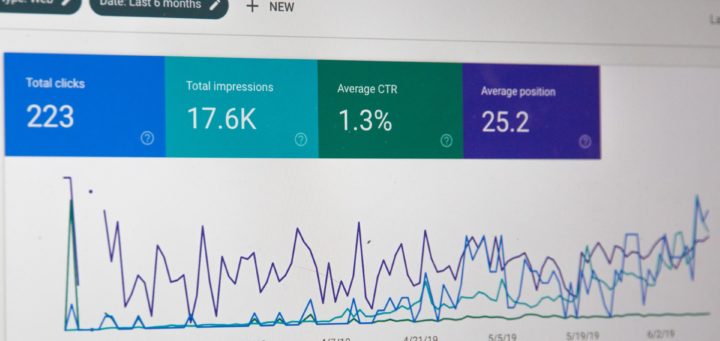But just how often is ‘often’? Let’s break it down between on-page and off-page SEO.
On-Page SEO
Keyword Research
The jeans that are on trend now may not be on trend in a year from now, and the same goes for keywords. As businesses evolve and their services or products change, or as trends in the environment change, or even as vocabulary usage changes, it can effect your keywords. Keep track of the keywords you use and check their rankings every 3 months or so; if you’re finding that search volume is decreasing for certain terms, you might need to refresh your research (and you can use these free tools to help).
Meta Data
To coincide with potential refreshes in your keyword research, your meta data might need a refresh as well, if your keywords change. In addition to updating your Title Tags, your Meta Descriptions will need to be updated too — and make sure you try to keep them within the character count maximums that Google allows (which is presently under 160 characters)
Website Content
Creating and publishing quality content not only helps your SEO but can also drive engagement and educate, inform and entertain your audience. So how often should it be updated to maintain SEO? You should be tracking your website page traffic on a regular (weekly) basis. Any increases or drops to any of your pages should be investigated, and if you notice a steady decrease of traffic to a given page or blog post, that might be your signal that it’s time to update it.
You can do this by refreshing that page’s content, updating title tags or meta data, or re-sharing it to get it circulating through social media again. If you need help sticking to a content schedule, check out our content calendar template which will help you stay aligned to your marketing strategy.

Off-Page SEO
Link Development
About every month you should be checking your backlinks and regularly requesting the removal of any which could be considered spammy. There are a lot of backlink tools that can help you accomplish this.
Once you’ve removed a bad backlink, you should replace it with a higher quality one to help your ranking. You can also use the same tools mentioned above to report on the backlinks your competitors have which might also be useful for you to pursue.
Social Media
Although a strong social media presence will not directly impact your ranking, it does increase your brand awareness and bring new visitors to your site. On a monthly basis, you should be measuring your followers, likes, clicks, retweets, shares, etc. across all social media profiles. Track which posts garner the most engagement, and compare those to others that may have not performed as well to find out what works best for your audience so you can keep creating relevant content.
Local SEO
Search for your company profile on all local SEO listings like Google, Yelp, Bing Places, Yellow Pages, etc. Are your profiles all consistent to each other? Do they all contain the most accurate, up-to-date information like your business address, contact details, hours of operation? Do these details then match all of the details on your company’s social media profiles as well? Local SEO can be negatively impacted if your local listings are not updated and consistent.
It’s not necessary to review these on a monthly basis, unless your business has moved or you’ve updated hours or contact information. Any time something changes at your company that may affect your Local SEO, check all of your listings to make sure they are always up to date.
—
Although SEO is a project that never ends, as long as it’s being managed properly and consistently, it will still produce positive results along the way.


